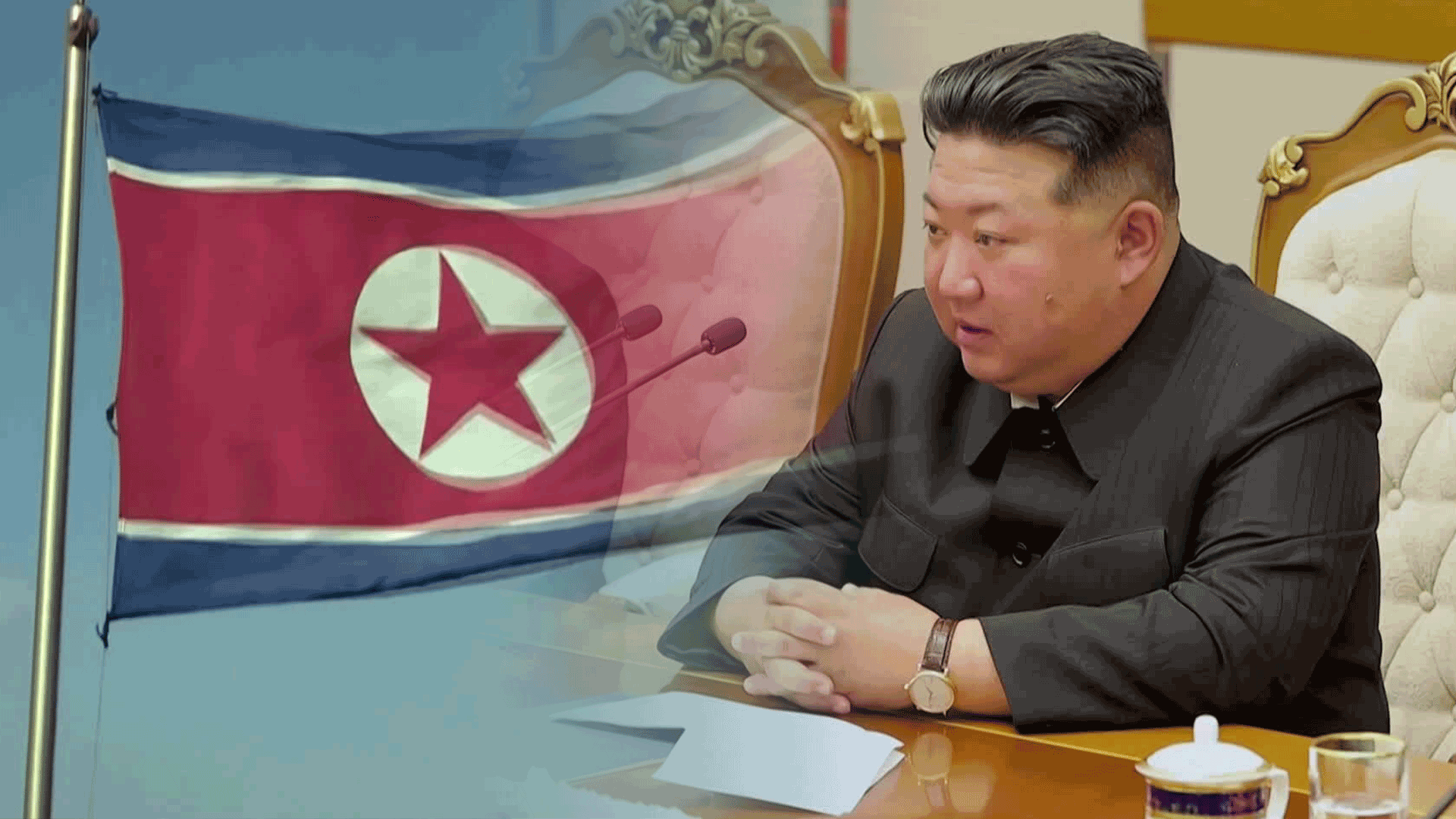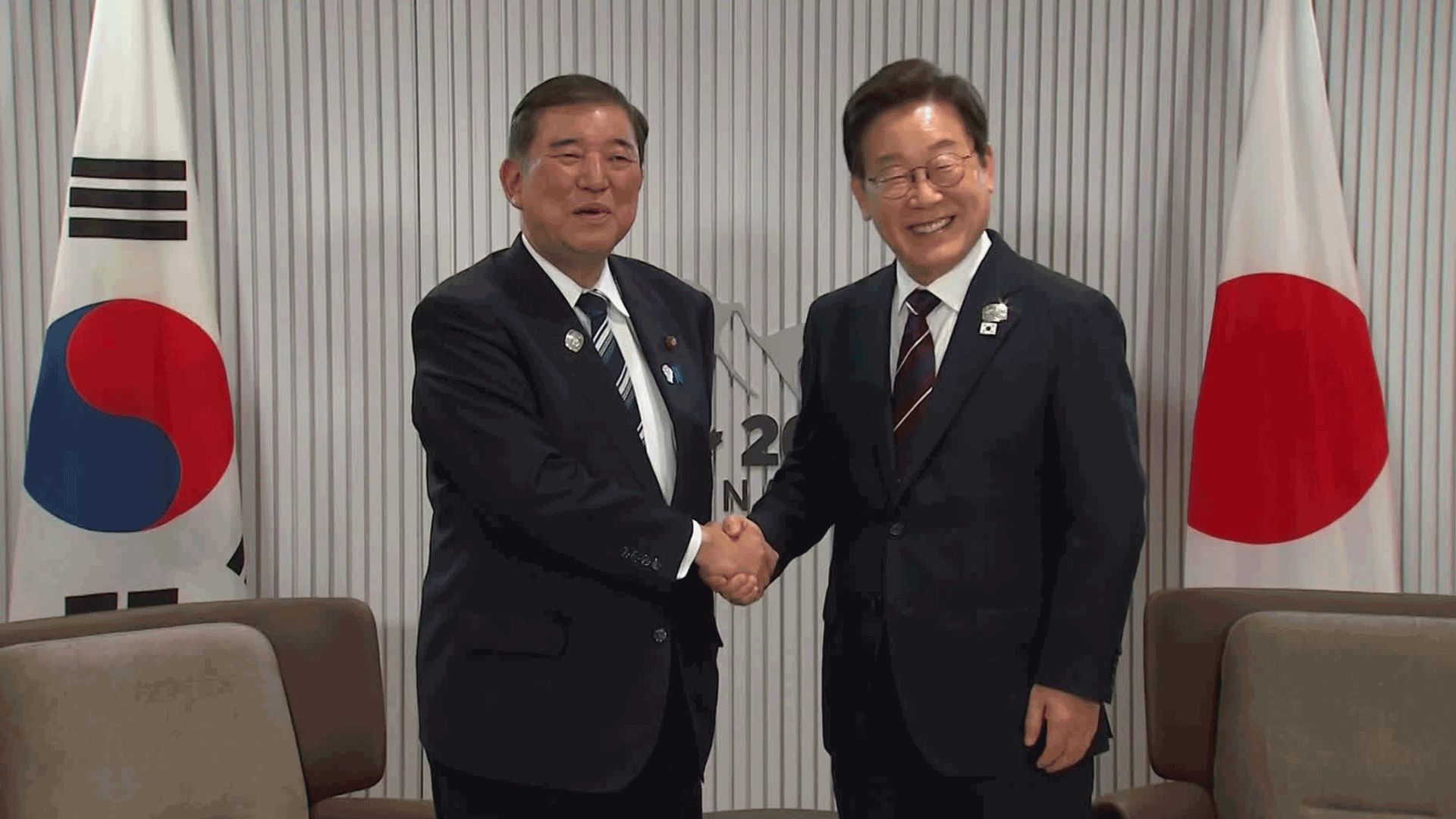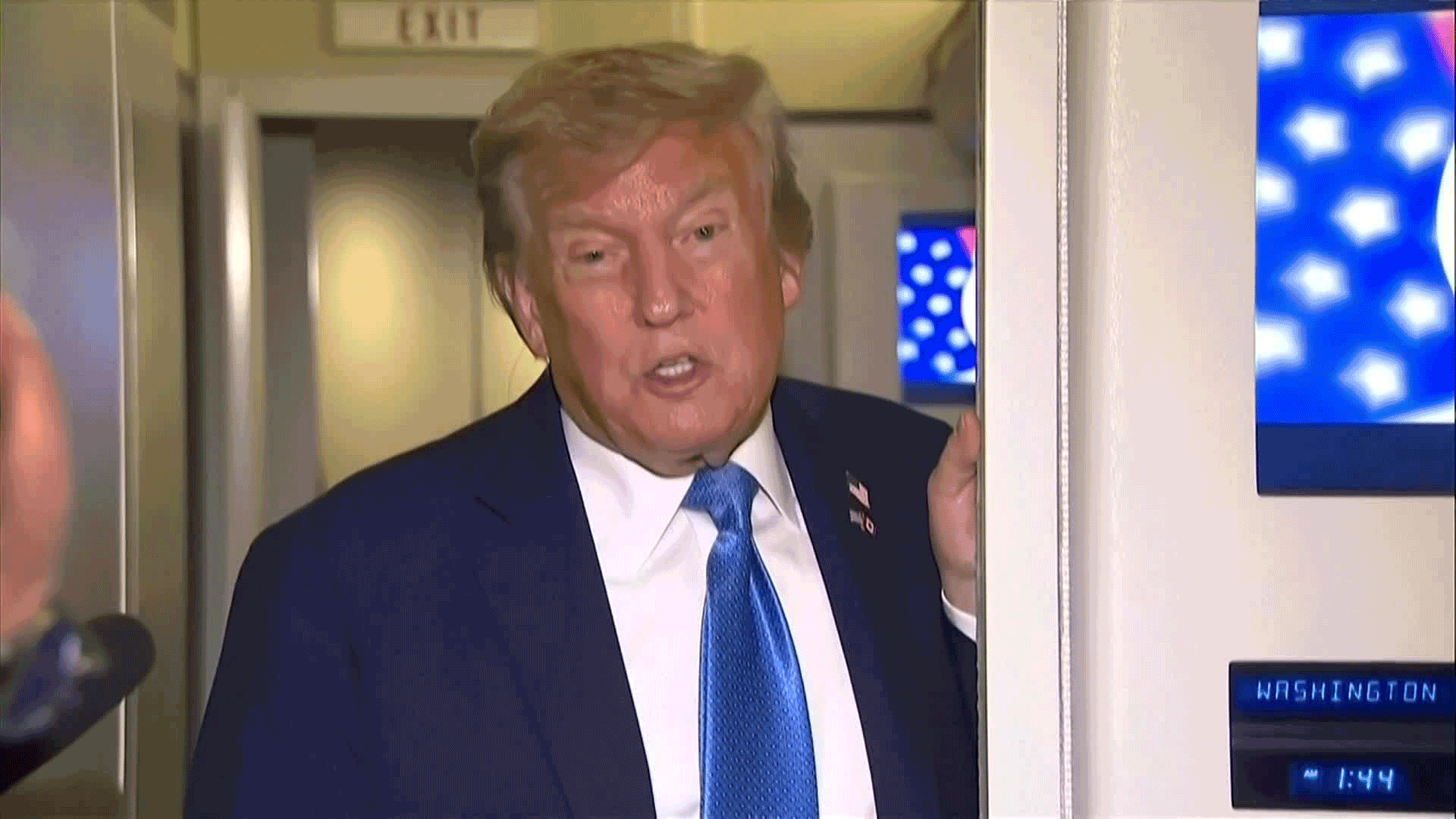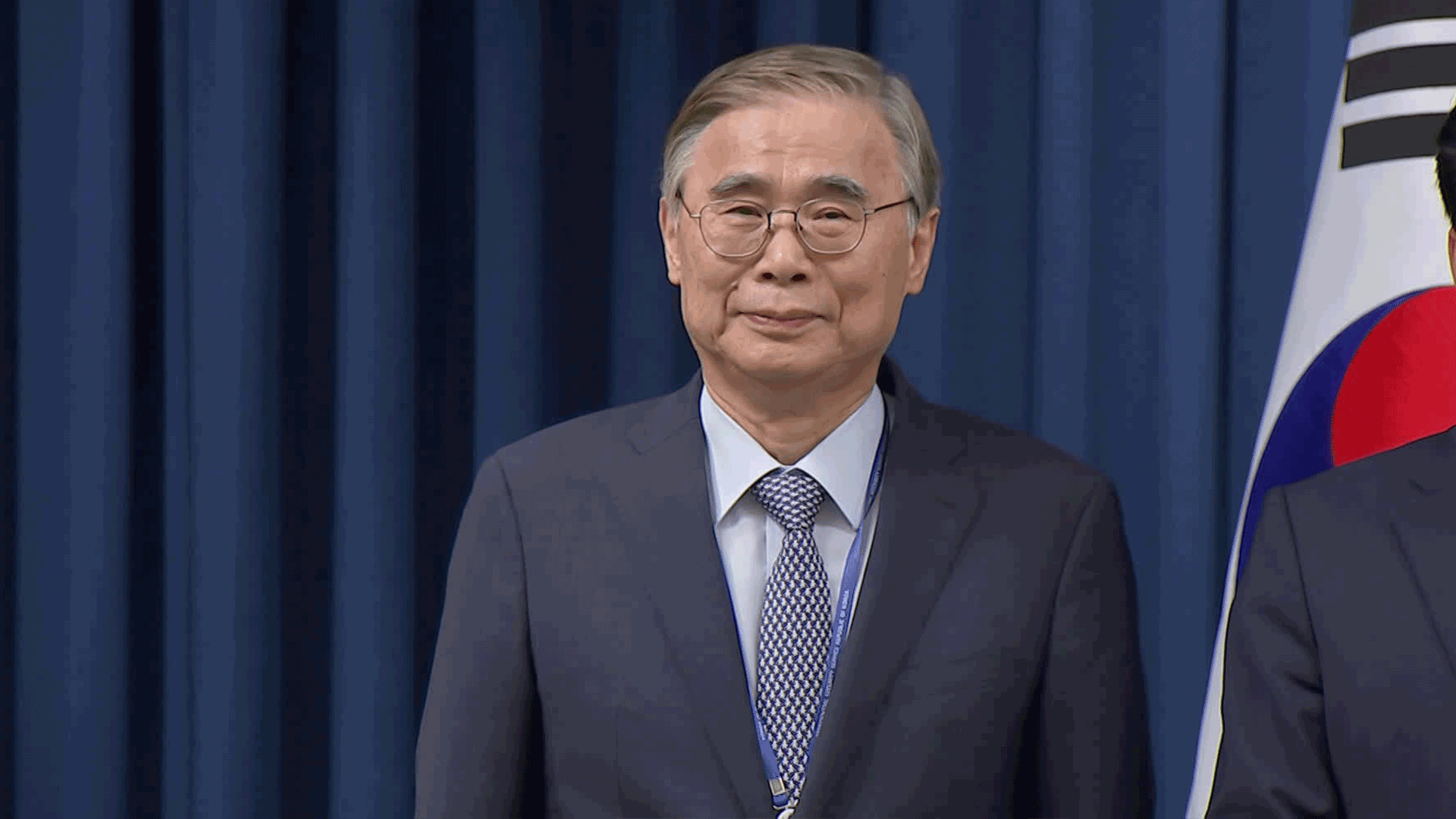Reading North Korea’s intentions
입력 2025.06.12 (22:42)
수정 2025.06.13 (03:04)
읽어주기 기능은 크롬기반의
브라우저에서만 사용하실 수 있습니다.
[Anchor]
As you just saw, North Korea immediately responded to our cessation of loudspeaker broadcasts and rejected the letter from the United States.
At the same time, it showcased its closeness by sending a congratulatory message to Russia for its National Day.
Reporter Kim Gi-hwa analyzes North Korea's intentions.
[Report]
On the day it was revealed that Chairman Kim Jong-un rejected President Trump's letter, he sent a congratulatory message to President Putin.
Although it is something sent every year, the coverage has significantly increased, and expressions like "brother nation" and "blood-bonded comradeship" have appeared.
The background to not even receiving Trump's letter seems to be the closeness with Russia, which has become a 'blood ally'.
North Korea, having gained a strong backing, appears to mean that it will not give the United States any room for dialogue at this time.
[Im Eul-chul/Professor at Gyeongnam National University’s Institute for Far Eastern Studies: "Creating a dialogue phase with the United States right now could conflict with strategic cooperation with Russia, so they are not in a hurry to engage in dialogue with the U.S."]
The shock of the 2019 'Hanoi no-deal' also influences this situation.
Although Chairman Kim showcased his friendship by meeting three times during Trump's first term, his experience of 'humiliation' in Hanoi demands actual actions rather than words from him.
[Hong Min/Senior Research Fellow at the Korea Institute for National Unification: "If there is no clear change in the U.S. attitude, they will likely judge that there is no need to hastily respond to dialogue or create a dialogue scenario."]
In the same context, North Korea's immediate response to the cessation of loudspeaker broadcasts is significant, as it reflects that the South has taken a 'preemptive, practical measure' by stopping a psychological warfare tool that North Korea dislikes the most.
As the new government continues to send conciliatory messages toward North Korea, it is noteworthy whether North Korea will change its attitude and respond positively to our attempts to contact for the repatriation of North Korean fishermen drifting at sea.
Additionally, while continuing exploratory talks with the United States for the time being, there are also predictions that North Korea will engage in full negotiations when the situation becomes strategically favorable.
This is KBS News Kim Gi-hwa.
As you just saw, North Korea immediately responded to our cessation of loudspeaker broadcasts and rejected the letter from the United States.
At the same time, it showcased its closeness by sending a congratulatory message to Russia for its National Day.
Reporter Kim Gi-hwa analyzes North Korea's intentions.
[Report]
On the day it was revealed that Chairman Kim Jong-un rejected President Trump's letter, he sent a congratulatory message to President Putin.
Although it is something sent every year, the coverage has significantly increased, and expressions like "brother nation" and "blood-bonded comradeship" have appeared.
The background to not even receiving Trump's letter seems to be the closeness with Russia, which has become a 'blood ally'.
North Korea, having gained a strong backing, appears to mean that it will not give the United States any room for dialogue at this time.
[Im Eul-chul/Professor at Gyeongnam National University’s Institute for Far Eastern Studies: "Creating a dialogue phase with the United States right now could conflict with strategic cooperation with Russia, so they are not in a hurry to engage in dialogue with the U.S."]
The shock of the 2019 'Hanoi no-deal' also influences this situation.
Although Chairman Kim showcased his friendship by meeting three times during Trump's first term, his experience of 'humiliation' in Hanoi demands actual actions rather than words from him.
[Hong Min/Senior Research Fellow at the Korea Institute for National Unification: "If there is no clear change in the U.S. attitude, they will likely judge that there is no need to hastily respond to dialogue or create a dialogue scenario."]
In the same context, North Korea's immediate response to the cessation of loudspeaker broadcasts is significant, as it reflects that the South has taken a 'preemptive, practical measure' by stopping a psychological warfare tool that North Korea dislikes the most.
As the new government continues to send conciliatory messages toward North Korea, it is noteworthy whether North Korea will change its attitude and respond positively to our attempts to contact for the repatriation of North Korean fishermen drifting at sea.
Additionally, while continuing exploratory talks with the United States for the time being, there are also predictions that North Korea will engage in full negotiations when the situation becomes strategically favorable.
This is KBS News Kim Gi-hwa.
■ 제보하기
▷ 카카오톡 : 'KBS제보' 검색, 채널 추가
▷ 전화 : 02-781-1234, 4444
▷ 이메일 : kbs1234@kbs.co.kr
▷ 유튜브, 네이버, 카카오에서도 KBS뉴스를 구독해주세요!
- Reading North Korea’s intentions
-
- 입력 2025-06-12 22:42:50
- 수정2025-06-13 03:04:04

[Anchor]
As you just saw, North Korea immediately responded to our cessation of loudspeaker broadcasts and rejected the letter from the United States.
At the same time, it showcased its closeness by sending a congratulatory message to Russia for its National Day.
Reporter Kim Gi-hwa analyzes North Korea's intentions.
[Report]
On the day it was revealed that Chairman Kim Jong-un rejected President Trump's letter, he sent a congratulatory message to President Putin.
Although it is something sent every year, the coverage has significantly increased, and expressions like "brother nation" and "blood-bonded comradeship" have appeared.
The background to not even receiving Trump's letter seems to be the closeness with Russia, which has become a 'blood ally'.
North Korea, having gained a strong backing, appears to mean that it will not give the United States any room for dialogue at this time.
[Im Eul-chul/Professor at Gyeongnam National University’s Institute for Far Eastern Studies: "Creating a dialogue phase with the United States right now could conflict with strategic cooperation with Russia, so they are not in a hurry to engage in dialogue with the U.S."]
The shock of the 2019 'Hanoi no-deal' also influences this situation.
Although Chairman Kim showcased his friendship by meeting three times during Trump's first term, his experience of 'humiliation' in Hanoi demands actual actions rather than words from him.
[Hong Min/Senior Research Fellow at the Korea Institute for National Unification: "If there is no clear change in the U.S. attitude, they will likely judge that there is no need to hastily respond to dialogue or create a dialogue scenario."]
In the same context, North Korea's immediate response to the cessation of loudspeaker broadcasts is significant, as it reflects that the South has taken a 'preemptive, practical measure' by stopping a psychological warfare tool that North Korea dislikes the most.
As the new government continues to send conciliatory messages toward North Korea, it is noteworthy whether North Korea will change its attitude and respond positively to our attempts to contact for the repatriation of North Korean fishermen drifting at sea.
Additionally, while continuing exploratory talks with the United States for the time being, there are also predictions that North Korea will engage in full negotiations when the situation becomes strategically favorable.
This is KBS News Kim Gi-hwa.
As you just saw, North Korea immediately responded to our cessation of loudspeaker broadcasts and rejected the letter from the United States.
At the same time, it showcased its closeness by sending a congratulatory message to Russia for its National Day.
Reporter Kim Gi-hwa analyzes North Korea's intentions.
[Report]
On the day it was revealed that Chairman Kim Jong-un rejected President Trump's letter, he sent a congratulatory message to President Putin.
Although it is something sent every year, the coverage has significantly increased, and expressions like "brother nation" and "blood-bonded comradeship" have appeared.
The background to not even receiving Trump's letter seems to be the closeness with Russia, which has become a 'blood ally'.
North Korea, having gained a strong backing, appears to mean that it will not give the United States any room for dialogue at this time.
[Im Eul-chul/Professor at Gyeongnam National University’s Institute for Far Eastern Studies: "Creating a dialogue phase with the United States right now could conflict with strategic cooperation with Russia, so they are not in a hurry to engage in dialogue with the U.S."]
The shock of the 2019 'Hanoi no-deal' also influences this situation.
Although Chairman Kim showcased his friendship by meeting three times during Trump's first term, his experience of 'humiliation' in Hanoi demands actual actions rather than words from him.
[Hong Min/Senior Research Fellow at the Korea Institute for National Unification: "If there is no clear change in the U.S. attitude, they will likely judge that there is no need to hastily respond to dialogue or create a dialogue scenario."]
In the same context, North Korea's immediate response to the cessation of loudspeaker broadcasts is significant, as it reflects that the South has taken a 'preemptive, practical measure' by stopping a psychological warfare tool that North Korea dislikes the most.
As the new government continues to send conciliatory messages toward North Korea, it is noteworthy whether North Korea will change its attitude and respond positively to our attempts to contact for the repatriation of North Korean fishermen drifting at sea.
Additionally, while continuing exploratory talks with the United States for the time being, there are also predictions that North Korea will engage in full negotiations when the situation becomes strategically favorable.
This is KBS News Kim Gi-hwa.
-
-

김기화 기자 kimkoon@kbs.co.kr
김기화 기자의 기사 모음
-
이 기사가 좋으셨다면
-
좋아요
0
-
응원해요
0
-
후속 원해요
0















이 기사에 대한 의견을 남겨주세요.